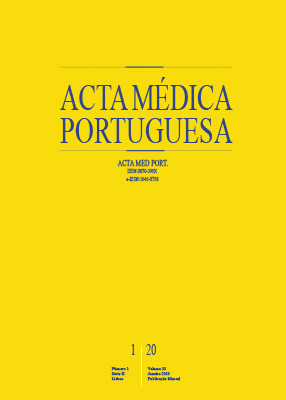Medical Curricula on Intimate Partner Violence in Mozambique
DOI:
https://doi.org/10.20344/amp.12049Keywords:
Competencies, Curriculum, Intimate Partner Violence, Medical Students, MozambiqueAbstract
Introduction: The aim of the study described in this paper is to screen medical curricula in relation to the attention paid to intimate partner violence, by applying a framework derived from the international literature.
Material and Methods: We screened curricula of five Mozambican medical schools based on a state-of-the-art intimate partner violence curriculum framework. The latter framework was based on a review of the literature.
Results: Few medical schools of Mozambique could be identified addressing intimate partner violence in their curriculum. When tackled, intimate partner violence content is mostly dealt within the context of Obstetrics and Gynaecology, Community Health and Forensic Medicine rotations. Intimate partner violence contents are integrated as stand-alone modules in some specific subjects. In none of the schools, specific teachers teaching intimate partner violence could be identified. No time allocation was specified to address the topic; no teaching and learning strategies could be identified invoking awareness or supporting basic knowledge acquisition; additionally, hardly any information about related assessment methods was found. Only in one medical school was the subject part of the formal curriculum.
Discussion: Intimate partner violence content is hardly and inconsistently addressed. The limited intimate partner violence content tracked in the Mozambican medical schools’ curricula, mainly addresses violence in general, for instance as identified in Orthopaedics or Surgery contexts and sexual violence in Obstetrics and Gynaecology. The inclusion of elements of intimate partner violence in the curriculum remains restricted, questioning the impact of medical education of future practitioners’ competencies.
Conclusion: Critical changes are needed in medical curricula to match the current epidemiology of intimate partner violence in Mozambique.
Downloads
Downloads
Published
How to Cite
Issue
Section
License
All the articles published in the AMP are open access and comply with the requirements of funding agencies or academic institutions. The AMP is governed by the terms of the Creative Commons ‘Attribution – Non-Commercial Use - (CC-BY-NC)’ license, regarding the use by third parties.
It is the author’s responsibility to obtain approval for the reproduction of figures, tables, etc. from other publications.
Upon acceptance of an article for publication, the authors will be asked to complete the ICMJE “Copyright Liability and Copyright Sharing Statement “(http://www.actamedicaportuguesa.com/info/AMP-NormasPublicacao.pdf) and the “Declaration of Potential Conflicts of Interest” (http:// www.icmje.org/conflicts-of-interest). An e-mail will be sent to the corresponding author to acknowledge receipt of the manuscript.
After publication, the authors are authorised to make their articles available in repositories of their institutions of origin, as long as they always mention where they were published and according to the Creative Commons license.









